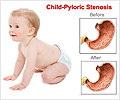A new study says that children with disruptive behavioral problems and their parents can benefit from peer led parenting classes.

The most common reason for referring a child to a mental health clinic is disruptive, aggressive and non-compliant behaviour. This affects the quality of life for both the child and family, and can develop into bullying, delinquency and more severe antisocial behaviour if left untreated. The authors suggest that there are well established links between parenting styles and children's behavioural problems, but many families fail to receive effective help due to stigma and difficulties getting to services. Parenting interventions have been shown to reduce disruptive behaviours in children and are recommended by the National Institute for Health and Clinical Excellence (NICE).
The authors tested the effectiveness of a parenting intervention that was delivered in an innovative peer led format. The rationale was that families would be more likely to seek out and continue treatment if it was delivered by fellow parents in local community settings, rather than professionals working in clinics. The intervention consisted of eight weekly, two hour group sessions aimed at improving participants' parenting skills, relationships and interactions with their children. The parenting sessions involved information-sharing, group discussion, demonstration, role-play and home practice. The peer facilitators who were running these groups had all completed accredited training and received regular supervision. Child problems, parental stress, parenting competencies and user satisfaction were measured through questionnaires completed by the parents.
Compared with a similar group of families who were assigned to a waiting list to receive the intervention later, those families took part in the peer led intervention reported clinically and statistically significant improvements in positive parenting practices and children's behavioural problems. There was also a reduction in parental stress, although this did not differ significantly between the two groups. Almost all of the parents (92%) who started the peer led intervention completed it, and all parents reported good or excellent levels of user satisfaction.
The authors conclude that this peer led intervention, which is called Empowering Parents, Empowering Communities (EPEC), is a successful way to deliver parenting support for some of the most vulnerable families in society. The demonstrated outcomes and accessibility of the peer led programme compare favourably with results from other clinical trials in which parenting interventions have been delivered in a conventional professional led format. The authors suggest that more work is needed to determine the long-term effects of peer led parenting support for individuals and communities. Future research is also needed to evaluate the cost-effectiveness of the programme, which may offer an economically viable method for improving access to evidence based parenting support for hard to reach families.
In an accompanying editorial, Dr Stewart-Brown from the University of Warwick speaks about the importance of the development of peer led parenting which she argues is often more effective than interventions delivered by professionals.
Advertisement
Advertisement










